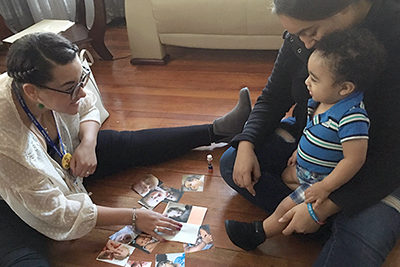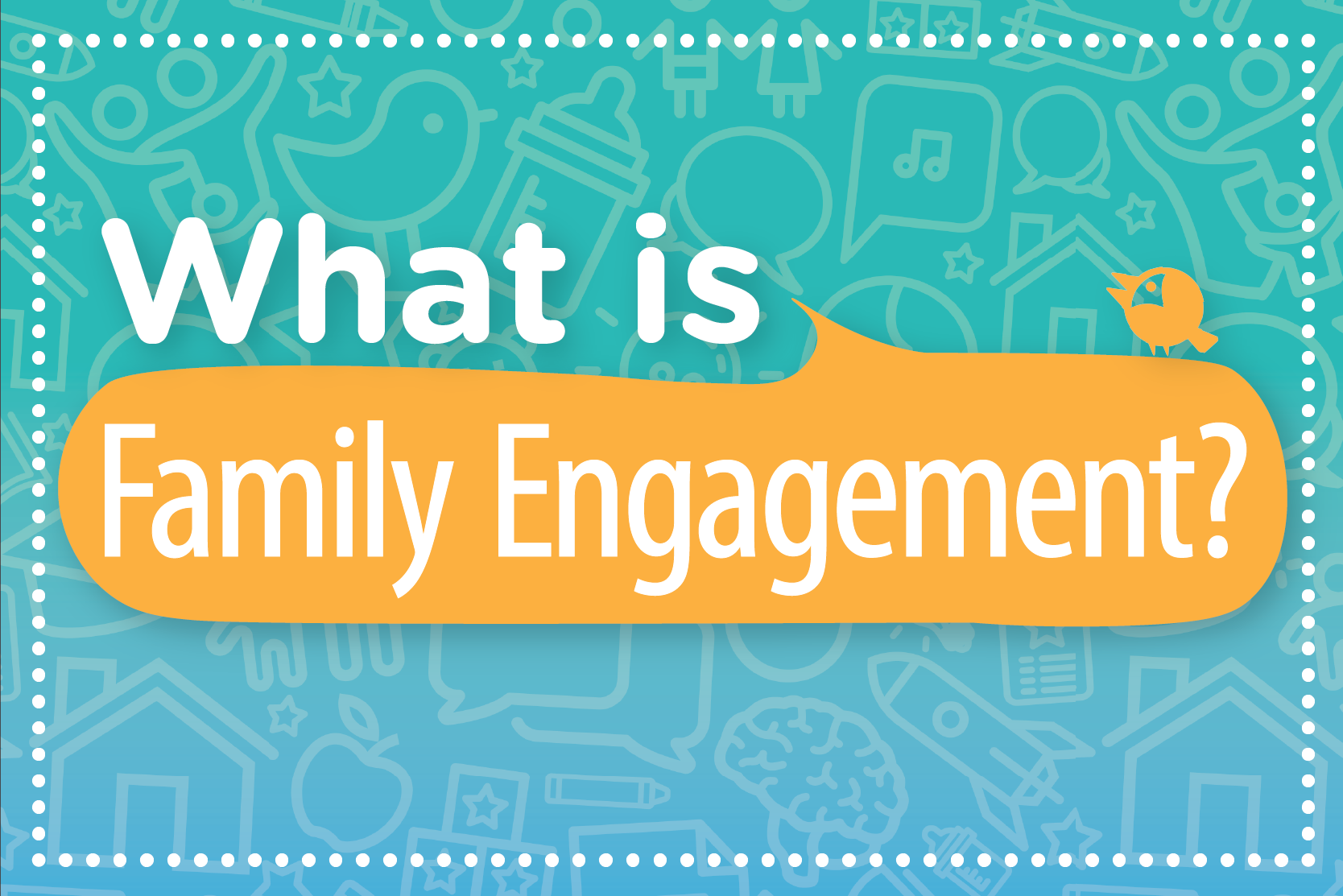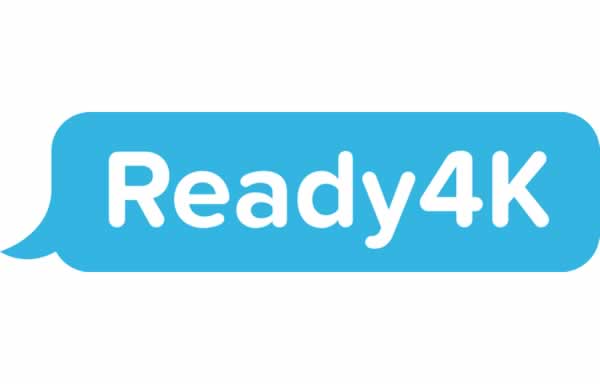
Q: What does your typical recruitment strategy look like, and how has that process evolved?
A: When I started as a Recruitment Specialist, the first thing I did was start posting things on Facebook and messaging everybody I knew who had a little kid. I went and talked to anyone who was my friend from high school. Whoever got back to me, I told them about the program and we started running a group for them, just like that. People I hadn’t seen for seven to 10 years came to the group and were so excited to see each other and meet each other’s kids and to tell other parents about the program.
The main thing I do now is go different places and just talk to people. I visit pediatrician’s offices, health centers, dental centers that take one-year-olds, WIC offices, the Department of Health and Human Services, anywhere you find parents. When I arrive, I display my table and have all of my information there. Some people think that I’m selling books. I tell them that I’m not selling anything, I’m just promoting a free, awesome program. If I’m not getting people’s attention at the table, then I walk around. I always bring things to engage the kids – crayons and coloring – and then the moms ask me what I do. I tell them about Providence Talks, or, if they don’t qualify, then I tell them about the other programs we have.
Q: Do you continue to use social media to reach parents?
A: Sometimes it really helps, but face to face they engage more. Still, everybody is on social media — Facebook, Instagram, Twitter — all of them. If you want to get the word out, you have to do it there, too. People might not respond to the post, but they’ll see it, and they may get the information to someone they know who can use it.
Recently, we started recruiting through a group on Facebook called “Tribe for Moms.” I was a member of the group, but I wasn’t really active until one of the moms posted asking what she could do to help her child’s development that wasn’t on a weekday. We decided to create a weekend group in response to that, so we made a flier and posted it to the group. We started a group with 14 kids. We didn’t know each other, we just started working together, and the moms started getting to know each other and exchanging numbers. It worked because they were engaged, and they still want to come. Their biggest question is why the program is only eight weeks long. We tell them that’s the curriculum we have, but they can still get together and do activities. We’re all moms, and we all have different things we do, so we just give each other tips.
Q: Are there other tools you use to recruit families?
A: We have fliers that we leave. I leave a flier wherever I go, if it’s a WIC office, or a hospital, or any place. We even went to apartments. The key is leaving fliers anywhere people get information.
We talked to the doctors at the pediatricians’ offices, and we left info with them so that they can refer people who are from Providence. We also went to pre-k classrooms and kindergarten classrooms and brought children’s books with a flier inside. If a parent didn’t have any small children they could give it to someone they know with a small child, and the book gives them more incentive to contact us. The receptionist at the school also helps a lot with getting the word out. We told her everything we know about Providence Talks so she can tell other people.
Ready to jumpstart your program’s recruitment efforts?
Q: What type of follow up do you do after you tell families about the program?
A: I have referral forms they fill out with their information, and I call them to set up an appointment. We always do the orientation at their house, because a lot of people wouldn’t end up coming otherwise, but after the orientation they have all the information and have filled everything out, so at that point they’ll come.
If they can’t attend the program now, we always keep all of the referral forms, and call them again when we’re scheduling our next groups to see if they have more time. Sometimes it will work, and sometimes it won’t.
I also keep in contact with them between sessions. We visit them every two weeks, and in between I keep them engaged by talking to them or texting with them regularly. I just send them quick messages to ask how it’s going and how the baby is. That way, if something happens, we always know, and I try to stay flexible so that they keep doing the program.
Q: Are there times your recruitment efforts haven’t gone so well or things you’d do differently now?
A: Recruitment is difficult for everybody. It’s difficult for me. We sometimes go through piles and piles of referral forms that didn’t pan out. Sometimes people will give wrong numbers or numbers that are disconnected, or they won’t pick up or call back.
When I started I went to a lot of places, and if that place didn’t work, I’d forget about it. If I were starting again, I would keep going back to the places I didn’t think would work until they say yes.
Q: Do you share your own experience when you talk about the program?
A: If I see that a parent is hesitant, I tell them that I also did the program when my daughter was very young, and I tell them that she was five months ahead in language development when we finished the program. That gets them thinking that if I can do it, so can they.
I tell them, “You have the power and you can do anything. If you want your child to be successful, you have to engage now, you have to do something now. This is the most crucial time for them, from zero to three. If they don’t learn critical skills now, they are going to struggle to keep up with another child who has been learning these things since they were little.”
Q: Do you have any advice for other programs struggling to recruit families?
A: Keep trying and keep going! It’s going to be tough at first, but it gets easier. I was shy, and I didn’t want to talk to anybody, but I pushed myself to do it. People are just people, they’re not going to eat you. You’ll get three “nos” for every one “yes.” People will say no to you, people will look at you weird, and you just have to keep going. If we want our future kids to be successful, we have to do this now.






2 Comments on “Parent Recruitment 101: A Q&A with Jennifer Calderon”
This was an “eye opener” for me. We have utilized similar strategies in our organization’s attempt to implement a LENA Start Program. Thank you for sharing additional recruiting ideas. This helped to confirm our recruiting strengths and identify areas that we could better prepare a recruiting plan for families and children in head start communities.